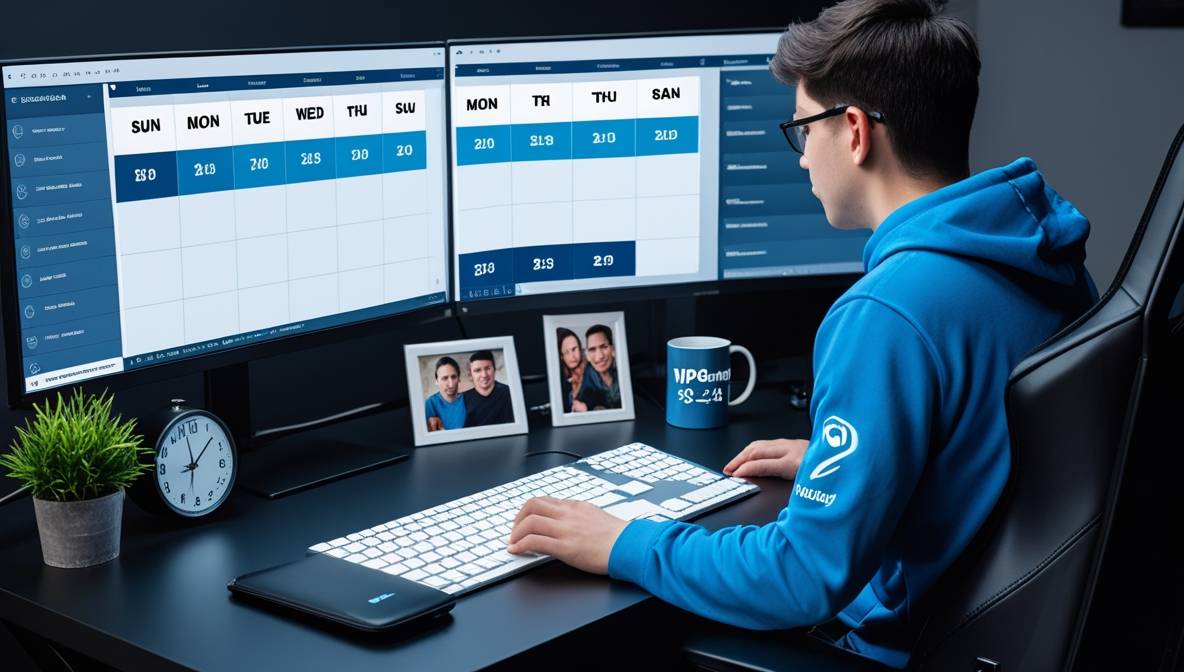Balancing gaming and life is critical for maintaining physical health, mental clarity, and strong relationships. VIPGame24’s guide delivers science-backed strategies to enjoy gaming while excelling in work, school, and personal goals.
Why Balance Matters: Risks of Over-Gaming
Physical Health Risks
- Sedentary Lifestyle: Prolonged sitting increases risks of obesity, heart disease, and chronic pain.
- Eye Strain & Posture Issues: 68% of gamers report eye fatigue; poor ergonomics worsen back/neck pain.
Mental Health & Social Impact
- Isolation: Excessive gaming reduces face-to-face interactions, heightening anxiety/depression risks.
- Sleep Disruption: Blue light from screens delays melatonin production, disrupting sleep cycles.
Productivity & Relationships
- Missed Deadlines: Binge-gaming leads to neglected work/school tasks.
- Strained Bonds: Partners/friends feel sidelined when gaming overshadows quality time.
Step-by-Step Strategies for Balance
1. Set Non-Negotiable Time Blocks
| Activity | Daily Time Allocation |
|---|---|
| Work/School | 6–8 hours |
| Gaming | 1–2 hours |
| Exercise | 30–60 minutes |
| Family/Social | 2–3 hours |
Use apps like RescueTime to track and enforce limits.
2. Prioritize Tasks with the “Eisenhower Matrix”
- Urgent & Important: Work deadlines, family events.
- Not Urgent but Important: Gaming sessions, skill-building.
3. Optimize Gaming Setup for Health
- Ergonomic Gear: Use chairs with lumbar support (see VIPGame24’s Gaming Chairs Guide).
- 20-20-20 Rule: Every 20 minutes, look 20 feet away for 20 seconds.
Turning Gaming into a Growth Tool
Skill Development Through Games
| Game Genre | Real-World Skill | VIPGame24 Picks |
|---|---|---|
| Puzzle (Portal) | Problem-Solving | Top Puzzle Games |
| Strategy (Civilization) | Resource Management | Best Strategy Games |
| Multiplayer (Overwatch) | Team Communication | Co-op Games List |
Career Opportunities in Gaming
- Content Creation: Start a channel (see VIPGame24’s YouTube Guide).
- eSports: Compete in tournaments like The International.
Real-Life Success Stories
- Alex, 24: Reduced gaming from 6hrs/day to 2hrs, landed a promotion by prioritizing work projects.
- Mia, 19: Streams Fortnite 3x/week while maintaining a 3.8 GPA using time-blocking.
Explore More on VIPGame24:
By merging discipline with passion, gamers can thrive in both virtual and real worlds. 🕹️✨

